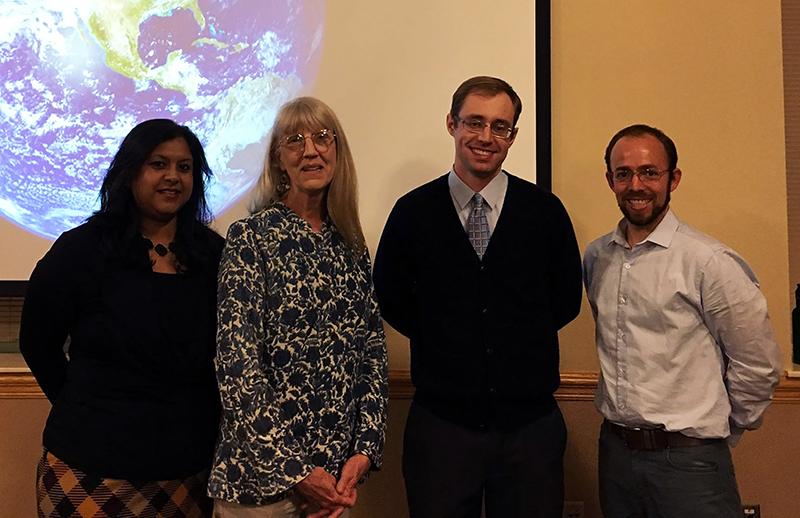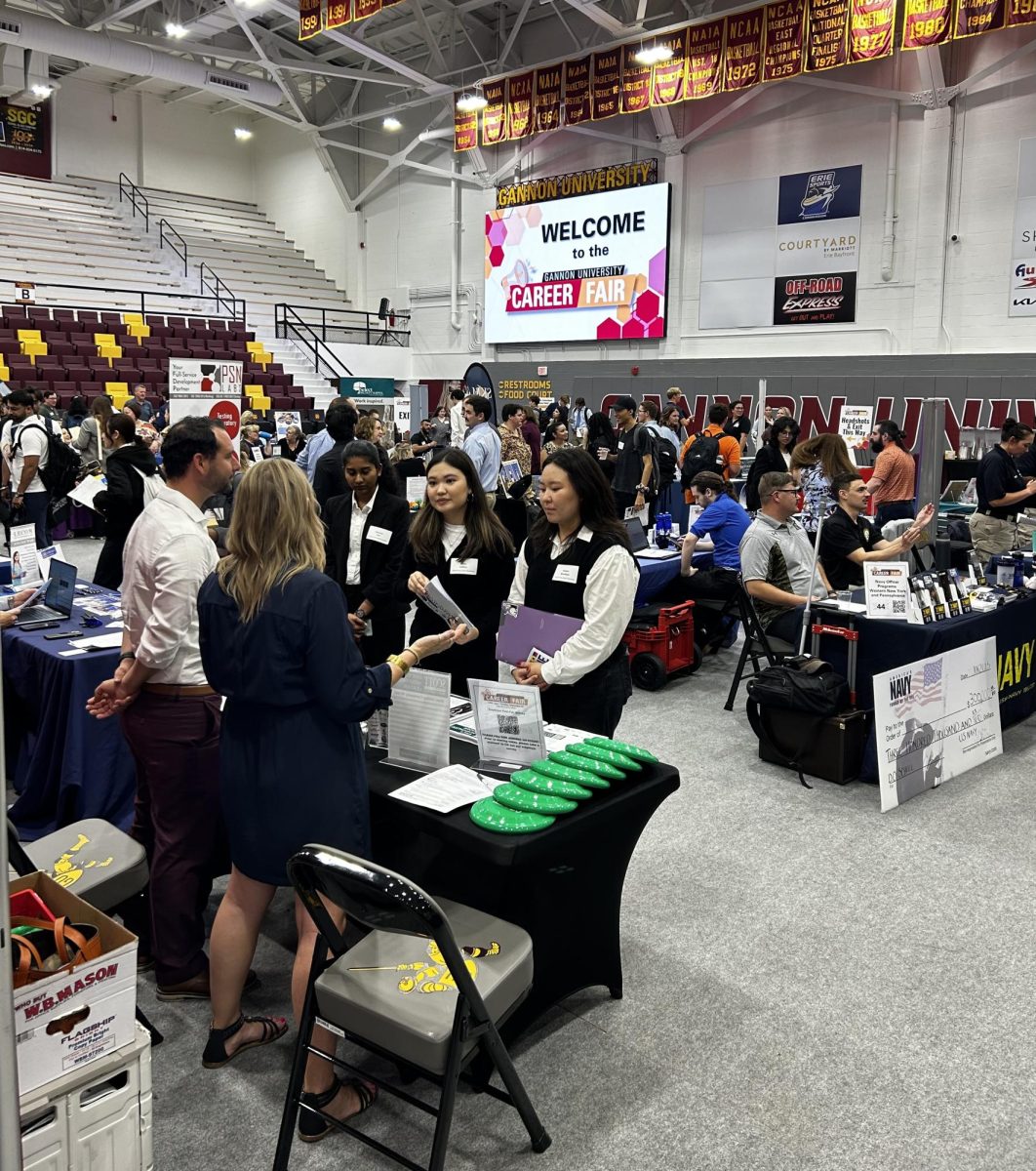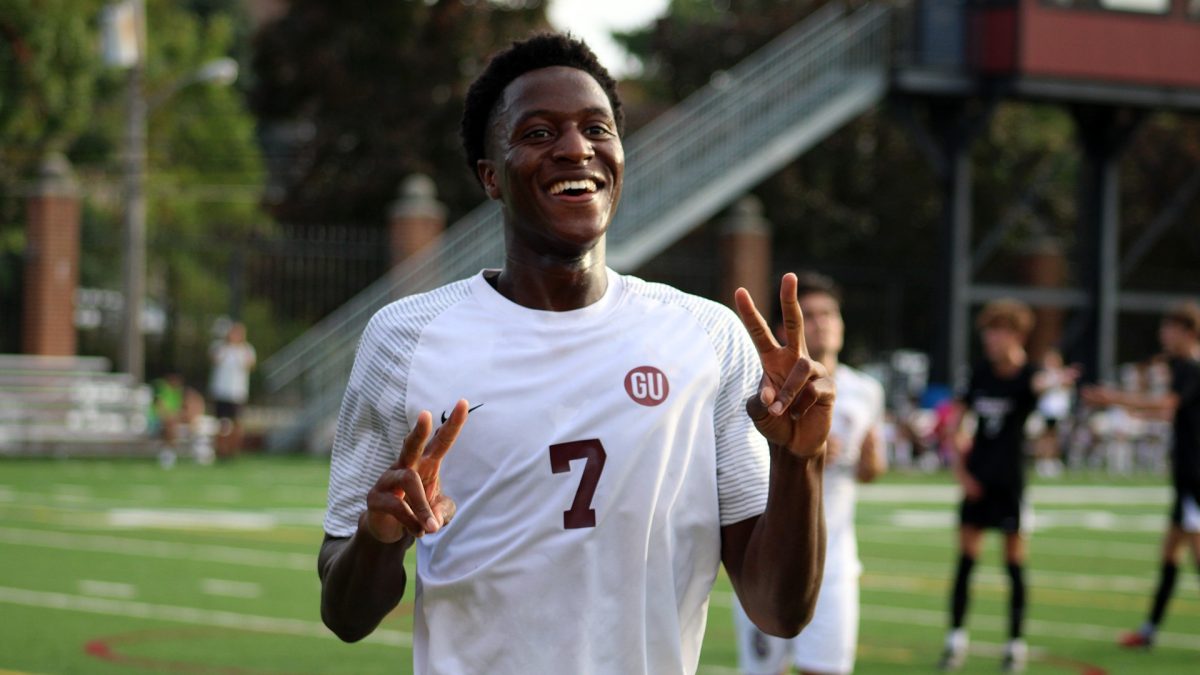Gannon University held the Culture and Climate Change “Debate”: Turning Fact into Fiction Tuesday as the third event in this semester’s theme of climate change.
The debate consisted of a panel discussion involving Chris Dempsey, Ph.D.; Penelope Smith, Ph.D.; Will McAndrew, Ph.D.; and Anjali Sahay, Ph.D., and focused on the manufactured controversy of climate change from a variety of different angles.
Smith, director of the liberal studies program and an assistant professor of English, was the initial organizer of the climate change debate. She said that the idea for this event stemmed from research and theory that she had read in fields that pertain to the issues of climate change.
Smith said that her research led to the conclusions that climate change is a serious issue and that it is caused by human activity, but the controversy of those two conclusions still exist. This is why she created the climate change debate.
Smith said that the other panelists involved in this event were also interested in why there is still so much controversy revolving around the issue of climate change.
Dempsey, an assistant professor of biology, opened the discussion with the science of climate change. He covered the difference between weather and climate. He showed the evidence of global climate change, stating that carbon dioxide, temperature, sea ice extent, ice melt and sea level rise are evidence.
Smith spoke on the rhetorical strategies that are used in order to create the appearance that the controversy surrounding the topic of climate change still exists. She said her interest was in the fact that there is still controversy going on even though climate change science is conclusive.
She brought up the example that climate change deniers will quote themselves in publications claiming that their information is factual even if it is not. She closed by stating that those who refuse to acknowledge climate change just need to create doubt.
McAndrew, an assistant professor of economics and finance, discussed how economic concerns influence how people discuss climate change. He also spoke about the possible existence of economic advantages that may come along with the illusion of controversy about this topic.
McAndrew expressed his opinion on whether we should address or ignore climate change.
“I would argue that waiting would be a bigger problem,” he said. He also said that the cost of ignoring climate change may be our planet.
He explained that there would be a lot of human costs that people would need to pay in order to fix climate change. He spoke on the fact that we have a choice to make. We can either solve the problem and create other issues and costs or we can ignore climate change and allow the issues to continue.
Lastly, Sahay, an associate professor of the department of political, legal and international studies, discussed how political concerns influence the way we discuss climate change as well as the possible political advantages that may accompany the illusion of controversy surrounding climate change.
She said that countries have come to a consensus that climate change is real. She discussed the fact that the countries are meeting and talking, but nothing is really being done to fix the issue.
She closed by speaking about the current presidential race, stating that Republicans tend to be the climate change deniers.
Smith explained how the event was set up in order to make it the most beneficial to the students who attended.
“We have planned our presentations to be interactive in order to encourage those who attend to think about issues related to climate change that may not be immediately obvious, including their own roles in these issues,” she said.
The discussion also included an opportunity for questions and answers in order to get the audience more involved.
HARLEE BOEHM
[email protected]











